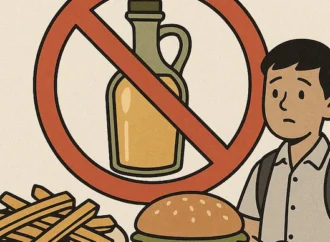Acrylamide forms in certain foods when cooked at high temperatures, such as frying, roasting, or baking. You’ve likely seen it mentioned in health news, especially regarding French fries, potato chips, and roasted coffee. Acrylamide is produced during the Maillard reaction, where sugars and an amino acid (asparagine) react when heated. While studies have shown that acrylamide can cause cancer in animals, the link to human cancer remains unclear. However, if you’re concerned, there are simple steps you can take to reduce exposure. Let’s dive into what you can do to minimize your acrylamide intake.
How Does Acrylamide Form?

Acrylamide forms naturally in foods when you cook them at high temperatures, especially in foods rich in carbohydrates. It’s not added intentionally but results from a chemical reaction between asparagine (an amino acid) and sugars during cooking. For example, when you fry potatoes, the heat triggers this reaction, producing acrylamide. This process occurs when you fry, roast, or bake foods at temperatures above 120°C (248°F).
What Foods Contain Acrylamide?
Acrylamide primarily forms in plant-based foods when cooked at high temperatures. The levels of acrylamide can vary depending on factors like cooking time, temperature, and food type. Foods cooked to a crispy or browned texture generally contain higher acrylamide levels. Here are some common sources:
-
French fries
-
Potato chips
-
Crackers
-
Breakfast cereals
-
Cookies
-
Coffee
-
Roasted almonds
-
Some grain-based coffee substitutes
Interestingly, acrylamide doesn’t form when foods are boiled or steamed, as those methods don’t reach the high temperatures required for acrylamide production.
Sources Beyond Food: Cigarette Smoke
Acrylamide also appears in cigarette smoke, making smokers a significant source of exposure. Smokers have much higher levels of acrylamide in their bodies compared to non-smokers. They can have three to five times more acrylamide just from smoking. Quitting smoking is one of the most effective ways to reduce exposure.
Does Acrylamide Cause Cancer?
The link between acrylamide and cancer remains a topic of debate. Animal studies show that acrylamide causes cancer, but human studies have not provided conclusive evidence. In these studies, researchers exposed animals to much higher doses of acrylamide than humans typically consume. Some experts argue that the levels we ingest from food are too low to cause significant health risks. So far, large-scale human studies have not found a clear connection between dietary acrylamide and cancer.
The International Agency for Research on Cancer (IARC) classifies acrylamide as a probable human carcinogen based on animal research, but no consistent evidence supports the idea that acrylamide from food causes cancer in humans.
How to Reduce Your Exposure to Acrylamide
If you’re concerned, here are some steps you can take to minimize acrylamide intake:
-
Cook food for a shorter time: Avoid cooking food until it becomes too crispy or browned.
-
Lightly boil potatoes: Boiling potatoes before frying or roasting reduces acrylamide formation.
-
Avoid storing potatoes in the fridge: Storing potatoes in the fridge increases acrylamide formation when cooked.
-
Cook at lower temperatures: Lower temperatures reduce acrylamide levels, although this may affect the texture of some foods.
-
Check packaged snacks: Look for information about acrylamide reduction in packaged snacks.
Should We Avoid Acrylamide Entirely?
While it’s smart to be cautious, the risks of acrylamide are likely minimal compared to other health concerns, like weight gain. Many of the foods that contain acrylamide, such as French fries and potato chips, are also high in calories and fats, which contribute to weight gain, heart disease, and diabetes. Experts recommend enjoying these foods in moderation rather than cutting them out entirely. A balanced diet that focuses on fruits, vegetables, whole grains, and lean proteins is always the best approach. Enjoy your favourite snacks in moderation, but make sure to maintain a well-rounded diet for long-term health.
Conclusion
While acrylamide has raised concerns due to its potential link to cancer, the research isn’t conclusive, and the risk from food appears to be minimal. If you’re still concerned, you can reduce exposure by tweaking your cooking habits and choosing healthier foods overall. Remember, moderation is key—enjoy your fries or coffee occasionally, but balance them with a healthy diet for better long-term health.
 Food Manifest
Food Manifest 

















